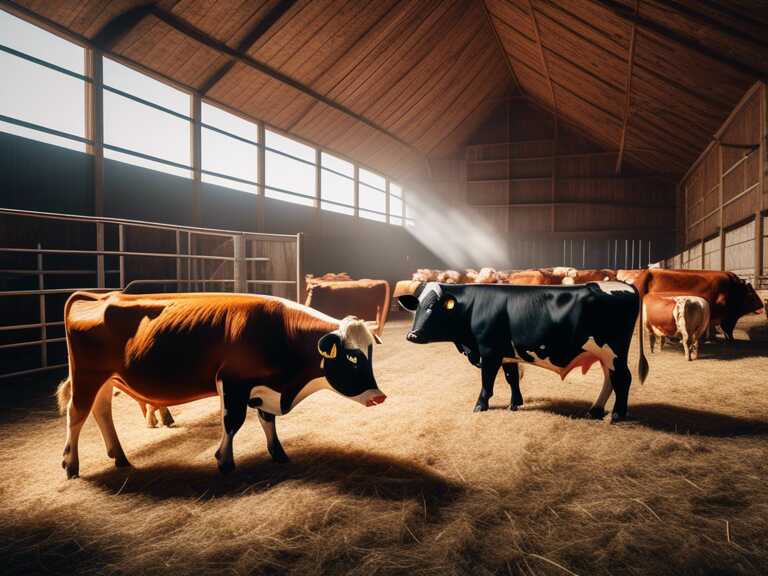
Denmark to Introduce Groundbreaking Livestock Carbon Tax to Fight Climate Change
Denmark to tax livestock emissions from 2030 to reduce methane and reach 70% emission cut by 2030.

In a pioneering move, Denmark has announced plans to levy taxes on livestock farmers for the greenhouse gases discharged by their cows, sheep, and pigs starting from 2030. The country aims to reduce its greenhouse gas emissions by a significant 70% from 1990 levels within the next decade, as unveiled by Taxation Minister Jeppe Bruus.
Groundbreaking Tax Structure
Commencing from 2030, Danish livestock farmers will face a tax of 300 kroner ($43) per ton of carbon dioxide equivalent. The tax is set to elevate to 750 kroner ($108) by 2035. Notably, a 60% income tax deduction will be applicable, reducing the initial cost per ton to 120 kroner ($17.3) and subsequently increasing to 300 kroner by 2035.
Impact of Methane Emissions
While carbon dioxide is commonly scrutinized for its impact on climate change, methane, a potent greenhouse gas, is approximately 87 times more effective in trapping heat over a 20-year period, as indicated by the U.S. National Oceanic and Atmospheric Administration. Notably, livestock contributes to about 32% of human-caused methane emissions, intensifying the urgency of addressing this issue.
Global Significance and Aspirations
Minister Bruus asserted that this initiative would propel Denmark closer to achieving climate neutrality by 2045, positioning the country at the forefront of efforts to combat environmental degradation. He emphasized that Denmark will be the first nation worldwide to enforce a genuine CO2 tax on agriculture, expressing optimism that other countries will follow suit. Notably, New Zealand had endeavored to implement a comparable law, but it encountered challenges and ultimately altered its approach.
“We have succeeded in landing a compromise on a CO2 tax, which lays the groundwork for a restructured food industry - also on the other side of 2030.”
Reactions and Collaboration
The announcement of this tax agreement follows prolonged protests by farmers across Europe against climate change mitigation measures, underscoring the contentious nature of efforts to address environmental concerns while sustaining agricultural livelihoods. The Danish Society for Nature Conservation hailed the tax agreement as a "historic compromise," illustrating the significance of the collaborative efforts between the government, industry representatives, and environmental organizations.
Legislative Approval and Industry Impact
Despite a slight decline in the number of cows in Denmark, the formidable tax legislation is poised to undergo approval in the 179-seat Folketing, or parliament, with widespread support anticipated due to the broad consensus achieved. Notably, Denmark, renowned for its dairy and pork exports, will also impose taxes on pigs, acknowledging the need to address emissions from various livestock sources.
According to Statistic Denmark, the Scandinavian country was home to 1,484,377 cows as of June 30, 2022, reflecting a marginal decrease from the previous year. This data underscores the substantial impact of the livestock industry on environmental emissions and the imperative to implement proactive measures.
Share news















